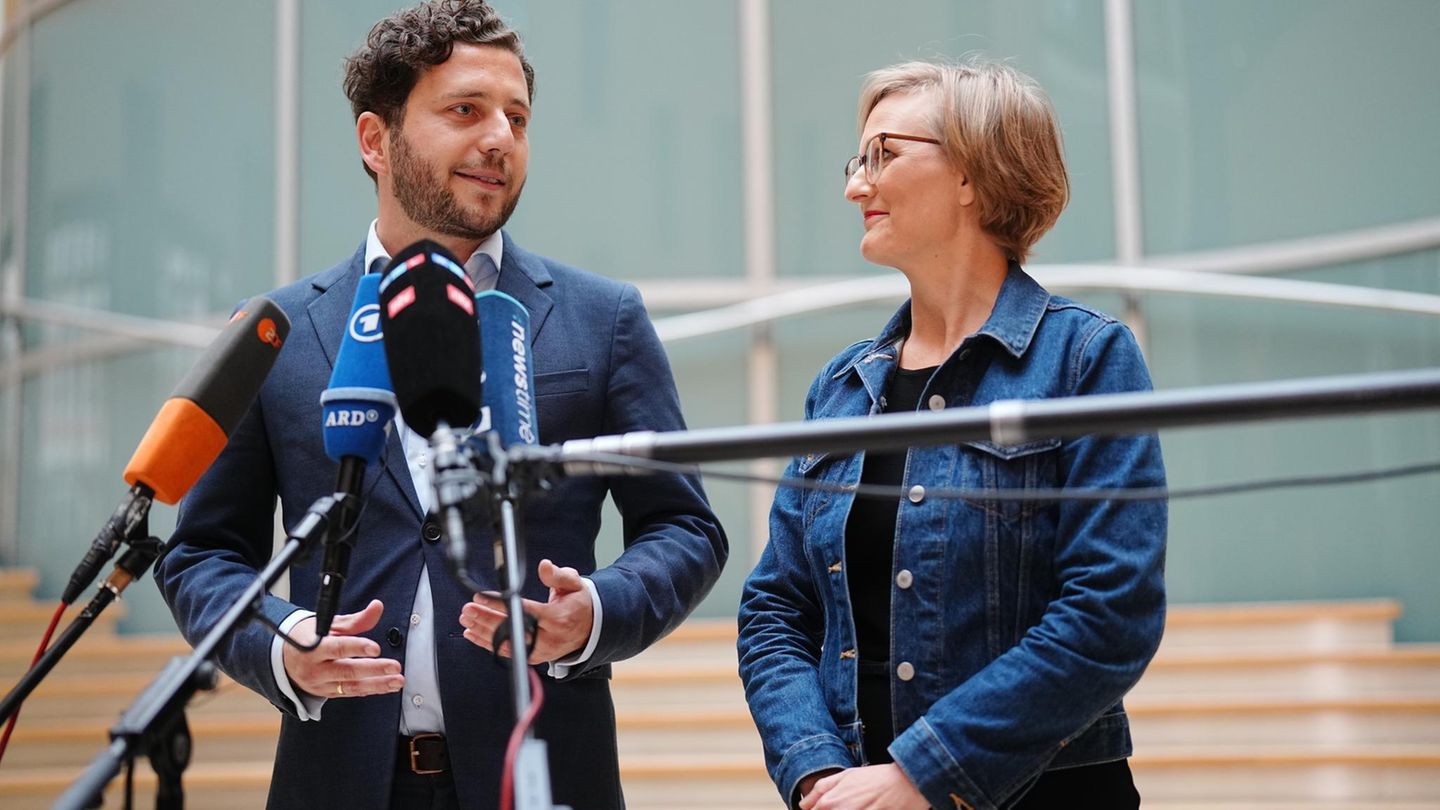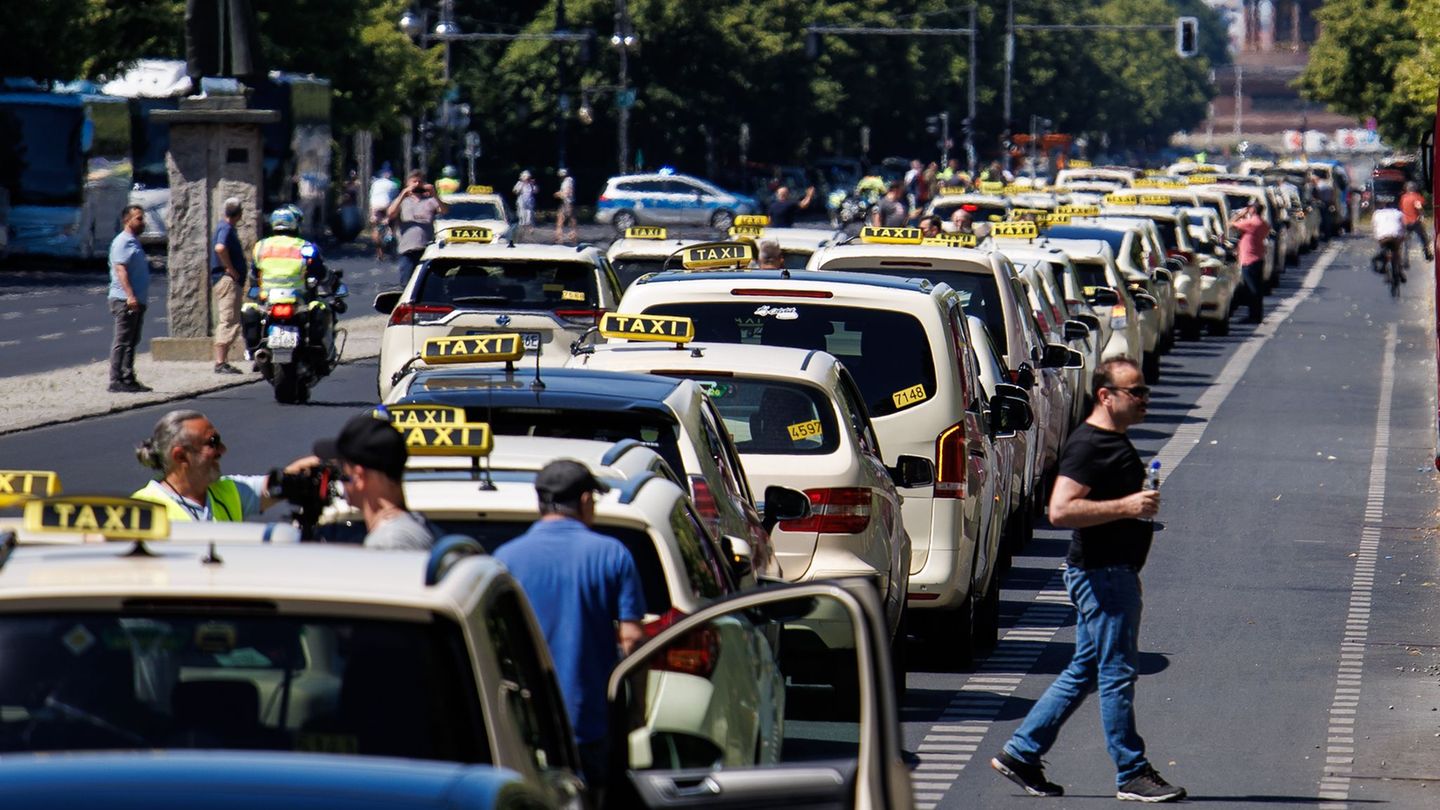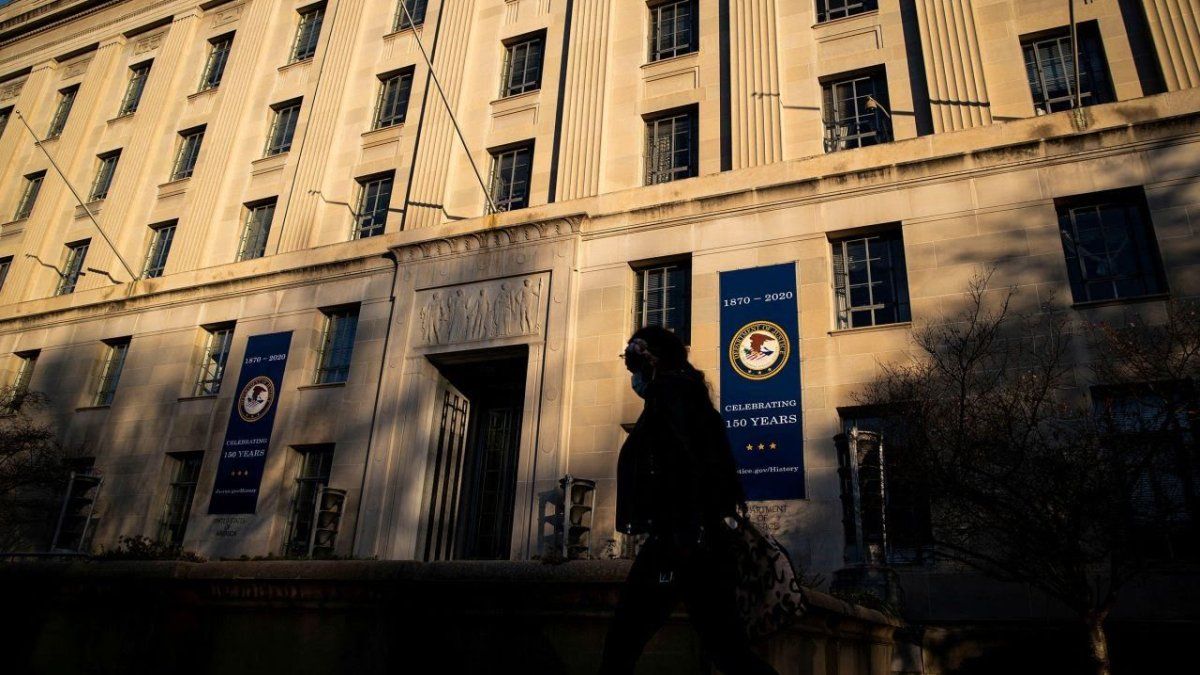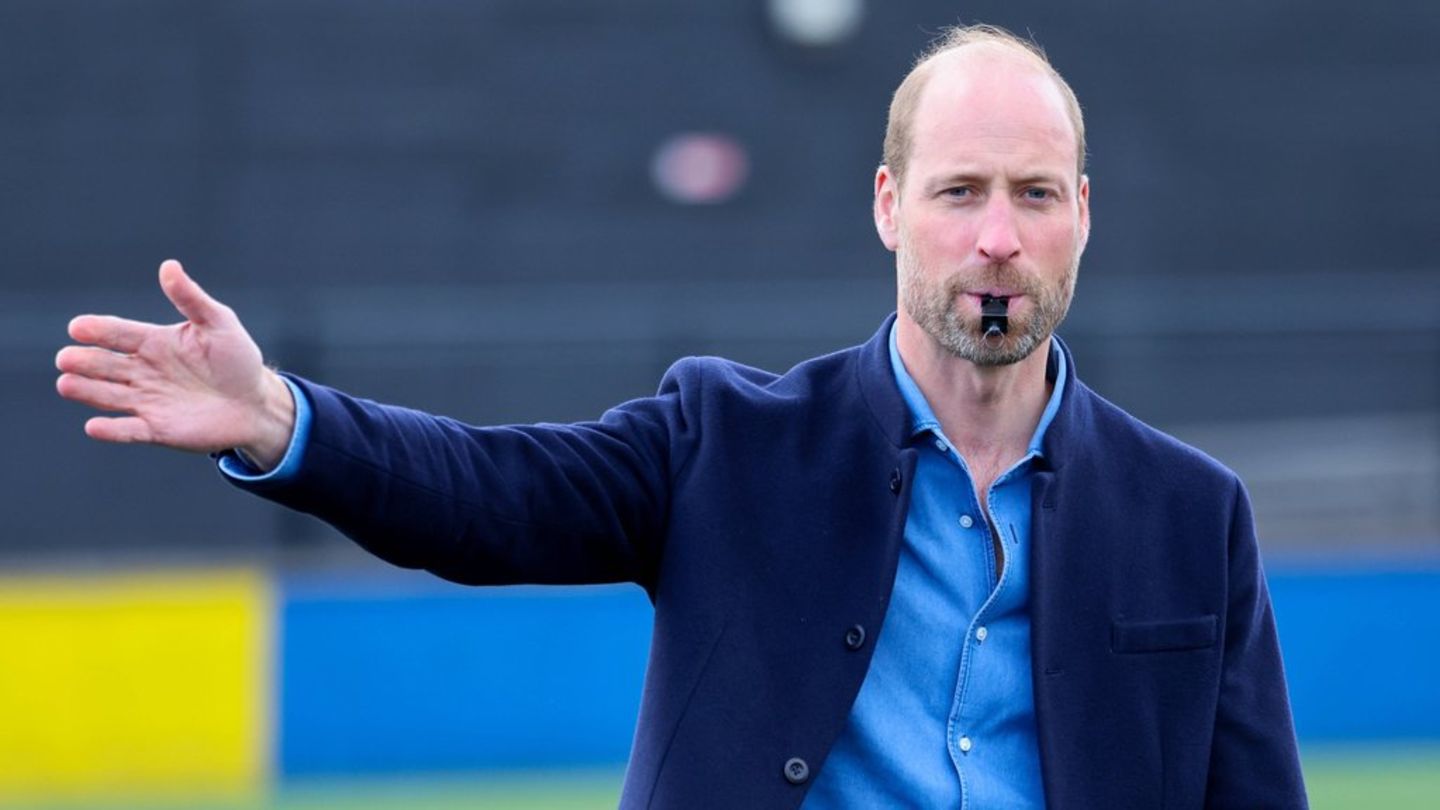At the end of the green chaos week it is clear: Franziska Brantner should lead the party out of the crisis. At her side: a young left-wing hope.
Franziska Brantner already has a rather unexpected fan. Serbian President Aleksandar Vučić. In July, Vučic received Chancellor Olaf Scholz in Belgrade. They wanted to celebrate the agreement between the EU and Serbia on lithium mining together.
At the press conference, the Serb not only thanked the Chancellor, but also the woman who sat quietly in the front row. She was “extremely important” in this process, Vučic praised Franziska Brantner, sounding a little surprised himself. He doesn’t think much of the Greens. And the Greens have nothing to say about him. “But I would like to thank her very much for everything.”
Brantner is not only State Secretary in the Federal Ministry of Economics and one of Robert Habeck’s closest confidants, but also the Federal Government’s special representative for more transparency in the raw material extraction sector. She accompanied the negotiations for the lithium deal.
The praise from Belgrade is of no use to her
Of course, the praise from Belgrade will be of little use to her in her new role. In her party, understanding for autocrats like Vučić is rather limited. Not everyone shares the pragmatic course that Habeck and thus also Brantner are taking at the head of the Ministry of Economic Affairs. And yet she is now expected to lead the Green Party as part of a new duo.
Franziska Brantner: Her name came up early
Just minutes after the two party leaders, Ricarda Lang and Omid Nouripour, unexpectedly appeared in front of the press on Wednesday morning and announced the resignation of the entire party executive, their name was mentioned for the first time. Party circles said that Habeck’s confidant could take over the chairmanship in November. Two members of the Bundestag, Andreas Audretsch and Felix Banaszak, were named as potential male co-chairs. On the women’s side, however, Brantner remained the only name seriously discussed.
In recent years, the native of Baden has earned a reputation within the party for being smart, hard-working and assertive. The political scientist (studied in Paris, New York and Mannheim) has sat in the European Parliament since 2008, in 2013 she moved to the Bundestag, and in 2021 she even won a direct mandate for the Greens in Heidelberg. She remained a pragmatist. This is also why Habeck is said to have made the Europe expert his state secretary.
On Friday afternoon it was clear who she wanted to take over the leadership of the party. Franziska Brantner and Felix Banaszak appear slightly disoriented when they appear in front of the press in the atrium of the Jakob Kaiser House in the Bundestag and initially don’t know exactly where to stand.
The two Greens invited people to make a statement at very short notice. As short notice as everything that happens with the Greens this week. Your core message: We compete, together. The Realo woman from Lörrach on the Swiss border and the party left from Duisburg – so that the Greens’ wing peace is maintained.
“We have two wings, and as we all know, you can only fly with both, so I will do everything I can to ensure that we go into this election campaign together,” says Brantner. And Banaszak adds: “Yes, I see it the same way.”
Banaszak, 34, sits on the Bundestag’s important budget committee, where, among other things, he deals with the climate and transformation fund. He began his political career as a spokesman for the Green Youth. From 2018 to 2022 he was the state leader of the Greens in North Rhine-Westphalia. From this time he knows Mona Neubaur well, today’s NRW Economics Minister. She is also considered a close confidant of: Robert Habeck.
Your future co was negotiating in North Rhine-Westphalia
Banaszak believes he has a certain amount of experience in how to stabilize a party in difficult times. When he took over the state chairmanship in North Rhine-Westphalia, they were “not rosy times,” he said on Friday. The result at least spoke for itself: in the 2022 state elections, the Greens tripled their result. He led the subsequent coalition negotiations himself, at the end it was black-green.
He is a rhetorically gifted MP with a sense of mission: at the end of last year he drew attention to himself when he recited a poem late at the lectern in response to a motion from the AfD parliamentary group: “Who burdens the Bundestag so late?” he said. “It’s the faction that no one likes.”
“We now have work to do,” Banaszak said this Friday. The Greens have experienced ups and downs in the years since they were founded, “and so far we have always managed to work our way back up from the valley.”
Mission: tame the centrifugal forces
This work, which lies before the two designated party leaders, also includes taming the internal centrifugal forces. There is the frustration over the electoral defeats in the three state elections in the east, the resignation and departure of the frustrated board of the Green Youth and, last but not least, the growing distrust that has arisen in parts of the party towards the ultra-pragmatic course of the government Greens. Nobody stands for this course as much as Habeck. And no one is as close to Habeck as Brantner.
“I’m running as Franziska Brantner, and if I were elected, then everyone would get Franziska Brantner,” she said. The 45-year-old shields her private life from the public. It is known that she was in a relationship with the controversial mayor of Tübingen, Boris Palmer, who himself was a member of the Green Party for a long time, until 2013 and has a daughter with him.
Close relationship with Baerbock
Brantner also has a close relationship with Annalena Baerbock: the two women are only about a year apart in age and both came to the Bundestag at the same time in 2013. The common party socialization brought them together, even if they did not always agree politically.
Baerbock himself is extremely satisfied with the candidates. On the sidelines of the general debate at the United Nations in New York, the Foreign Minister said: “This is a good day for the Greens because we are making it clear: the new start has been successful and the new start as a team.”
Audretsch is supposed to lead the election campaign
And that’s why Andreas Audretsch won’t go away empty-handed at the post carousel either. The Berlin member of the Bundestag is supposed to lead the federal election campaign in addition to his work as deputy parliamentary group leader. Habeck had originally chosen Franziska Brantner for the position, now Audretsch is supposed to replace the hapless Emily Büning. Since the Greens’ poor performance in the European elections, they have been considered a shaky candidate internally.
Robert Habeck has not yet been officially announced as the candidate for chancellor or top candidate, and none of the new candidates have been officially elected to office yet. This is supposed to happen at the Green party conference in Wiesbaden in mid-November. And yet at the end of this memorable week, the new green personnel table has been determined.
A message to the Union
And this tableau even contains a message for the Union’s candidate for chancellor, who was only announced on Monday. Friedrich Merz had recently always emphasized that a black-green coalition after the next federal election was out of the question for him. “From today’s perspective, I would say it’s not possible,” said Merz. Not with these Greens.
If you look at the fact that there will probably be another year until the next federal election, one thing can be said: Black-Green has perhaps become a little bit more likely this week.
Source: Stern
I have been working in the news industry for over 6 years, first as a reporter and now as an editor. I have covered politics extensively, and my work has appeared in major newspapers and online news outlets around the world. In addition to my writing, I also contribute regularly to 24 Hours World.




